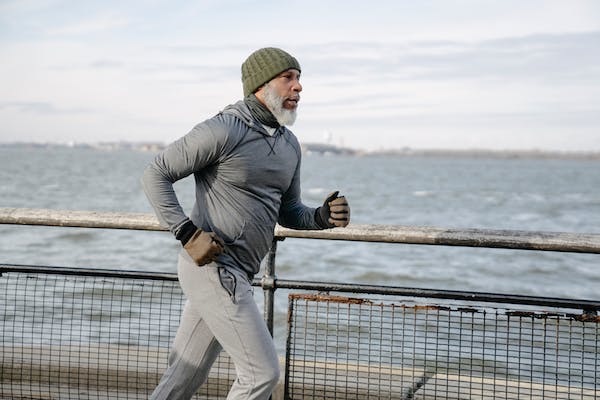Introduction
As we age, the significance of incorporating daily exercises into our routine becomes increasingly evident. It's not just about maintaining physical health but also about nurturing mental well-being and fostering social connections. In this article, we will delve into the myriad benefits of daily exercises for the elderly and explore how commitment to these activities can lead to a more fulfilling and healthier life.
Physical Benefits of Daily Exercises
Enhancing Cardiovascular Health
One of the primary reasons for seniors to engage in daily exercise is the positive impact on cardiovascular health. Regular physical activity helps improve blood circulation, reducing the risk of heart-related issues and maintaining optimal heart function.
Improving Flexibility and Balance
Daily exercises contribute to enhanced flexibility and balance, crucial aspects for preventing falls and injuries among the elderly. Simple stretches and balance exercises can significantly improve overall mobility.
Strengthening Muscles and Bones
Maintaining muscle and bone strength is vital for older individuals. Regular exercises, including strength training, can prevent muscle atrophy and reduce the risk of osteoporosis.
Mental Health Benefits
Cognitive Improvements
Exercise has been linked to cognitive benefits, including improved memory and cognitive function. Seniors who engage in daily physical activities often experience better mental clarity and sharper cognitive skills.
Mood Enhancement and Stress Reduction
Physical activity releases endorphins, the body's natural mood lifters. Seniors who commit to daily exercises often report reduced stress levels and an overall improvement in mood.
Social Aspects of Daily Exercises
Group Activities and Community Engagement
Participating in group exercises fosters a sense of community among the elderly. Whether it's a morning walk, a group fitness class, or a dancing session, these activities provide opportunities for social interaction.
Building Social Connections
Commitment to daily exercises can lead to the formation of social connections. Joining exercise groups or clubs creates a supportive environment where seniors can share experiences and motivate each other.
Tailoring Exercises for Different Abilities
Low-Impact Options
Recognizing the diverse physical abilities of the elderly, it's essential to incorporate low-impact exercises into routines. Water aerobics, gentle yoga, and walking are excellent options for those with mobility challenges.
Customizing Routines Based on Health Conditions
Individual health conditions vary, and a personalized approach to exercises is crucial. Consultation with healthcare professionals ensures that exercise routines are tailored to address specific health concerns.
Creating a Daily Exercise Routine
Incorporating Variety
To maintain interest and motivation, it's important to incorporate a variety of exercises into daily routines. This may include a mix of aerobic activities, strength training, and flexibility exercises.
Setting Realistic Goals
Seniors should set achievable and realistic goals for themselves. Gradual progress is key to sustaining a long-term commitment to daily exercise.
Overcoming Common Barriers
Addressing Physical Limitations
It's common for seniors to face physical limitations, but these should not deter them from exercising. Modifications and adaptations can be made to accommodate individual needs.
Dealing with a Lack of Motivation
Staying motivated can be challenging, especially if exercising alone. Encouragement from family members, and caregivers, or participating in group activities can help overcome motivational barriers.
Commitment and Consistency
Importance of Regularity
Commitment to daily exercises requires consistency. Establishing a routine and sticking to it ensures that the benefits of exercise are maximized over time.
Encouraging a Positive Mindset
Maintaining a positive mindset is integral to sustaining a commitment to daily exercise. Seniors should focus on the positive outcomes and the joy of staying active.
The Role of Caregivers and Family
Support Systems for the Elderly
Family members and caregivers play a crucial role in supporting the elderly in their exercise endeavors. Encouragement and active participation can make the process more enjoyable.
Encouraging and Participating in Exercises Together
Exercising together as a family creates a bonding experience. It also encourages a sense of accountability, making it more likely for seniors to stick to their exercise routines.
Addressing Safety Concerns
Consulting Healthcare Professionals
Before embarking on a new exercise routine, it's advisable for seniors to consult with healthcare professionals. This ensures that the chosen activities align with their health status.
Creating a Safe Exercise Environment
Ensuring a safe exercise environment is paramount. Seniors should exercise in well-lit areas, have proper footwear, and use assistive devices if necessary to prevent accidents.
Success Stories
Real-Life Examples of Improved Well-Being
Sharing success stories of seniors who have experienced positive transformations through daily exercises can inspire and motivate others to commit to their own routines.
Technology and Exercise
Utilizing Apps and Gadgets for Motivation
In the age of technology, seniors can benefit from various apps and gadgets designed to motivate and track their exercise progress. These tools add an element of fun and accountability.
Virtual Classes and Online Communities
Participating in virtual classes and joining online communities allows seniors to connect with like-minded individuals, providing a sense of community even in the digital space.
Staying Informed
Keeping Abreast of the Latest Exercise Trends for Seniors
Staying informed about the latest trends in senior fitness ensures that routines remain dynamic and engaging. Seniors can explore new activities to prevent boredom.
Continuous Learning and Adapting Routines
A commitment to daily exercises involves a willingness to learn and adapt. Seniors should embrace new information and adjust their routines as needed for continued benefits.


Comments
Post a Comment